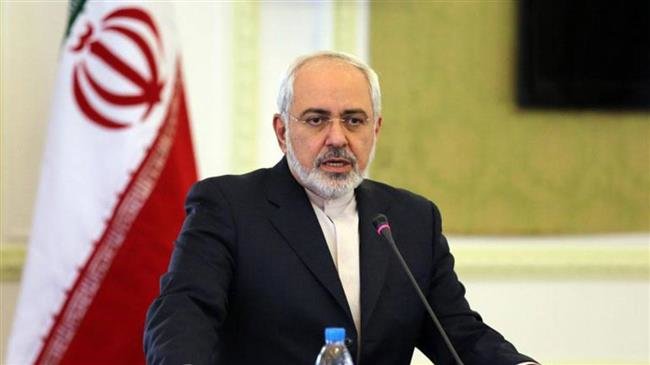Trump’s America First policy only brought US global backlash: Zarif


Iran’s Foreign Minister Mohammad javad Zarif has slammed US President Donald Trump’s so-called America First agenda as a “mistake,” saying his administration’s failure to honor international commitments under such an approach has only created a backlash across the globe.
Zarif made the remarks in an interview with London-based al-Araby al-Jadeed media outlet published on Tuesday.
He was asked about a recent tweet by Richard Haass, president of the Council on Foreign Relations, on French President Emmanuel Macron’s recent call for the creation of a “real European army” to protect itself against the US.
Haass had said “America First has brought us the revival of the spirit of De Gaulle. More evidence of a post-American world.”
Zarif stressed that he agreed with Haass regarding the fallout of Trump’s America first approach.
“Well, I think the United States is an extremely powerful country. The military expenditure of the United States is equal to the military expenditure of all other countries combined. However, the excessive use of any strength leads to its demise and leads to reaction in the part of the international community,” he said.
“President Trump, I think, has committed a grave mistake, as Richard Haass has pointed out. And that is he has tried to project the American military might as well as the American economic might over the ability of the rest of the international community to accept it. And that has created the backlash among US allies, backlash in Europe, backlash elsewhere. So, the America First approach has in fact created this backlash and everybody expected it,” he added.
Zarif also noted that the US has faced such a backlash over the Trump administration’s failure to honor international agreements like the 2015 Iran nuclear deal, called the Joint Comprehensive Plan of Action (JCPOA).
“The US under President Trump believes that it does not need to respect the international law because…it’s too confident of its power,” he said.
Europeans face challenges in setting up SPV
Elsewhere in his interview, the top Iranian diplomat said the Europeans are facing challenges in finalizing a “special-purpose vehicle” (SPV) to bypass the sanctions the US has re-imposed on Iran months after scrapping the multinational deal.
He emphasized, however, that the Europeans have the responsibility to address those challenges.
“If they (the Europeans) believe that the JCPOA, the nuclear deal, is a security requirement for them they must be prepared to invest in that and investment should go beyond just political statements,” he pointed out.
Asked about the possibility of Iran’s withdrawal from the JCPOA, he said, “There are many options that are available to Iran. That is one of the options.”
“There are options available within the JCPOA. There are options available outside the nuclear situation. So, we examine all those options.”
Pompeo revealed US ‘malicious intent’
Zarif was also asked about US Secretary of State Mike Pompeo’s comments last week on BBC Persian, where he said the Iranian government must listen to Washington “if they want their people to eat.”
The Iranian foreign minister says his American counterpart must assume responsibility for what he says or disown what the US does.
The Iranian foreign minister said Pompeo’s remarks exposed “the malicious intent of the United States.”
“I think it is clear that Iran has survived and will survive and will make progress without the United States and in spite of the United States. But what is day clear in the statement by Mr. Pompeo is that he is declaring that whatever he says about not targeting Iranian people is simply untrue. He is targeting Iranian people not only Iranian people in general but even he is trying – in vain in our view – to starve Iranian people,” he concluded.
Last week, the Trump administration unleashed a second round of sanctions against Iran since May, when Washington left the Iran deal in defiance of international objections.
The punitive measures — which had been lifted under the JCPOA — targeted 700 individuals, banks, aircraft, ships and companies tied to Iran’s energy and financial industries. The first round of such bans were re-imposed in August.








